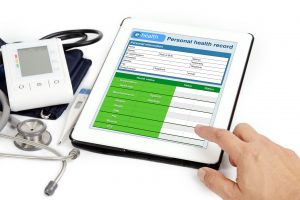USF Health Morsani College of Medicine at the University of South Florida is the only medical school in the country offering graduate programs in health informatics 100% online. The programs focus on the structure, dynamics, design, implementation, and maintenance of the information systems used to support the processing of health data into information suitable for decision making.
“With the radical transformation of the healthcare industry, USF Health is leading the way with its revolutionary team approach to medical care and research,” said Dr. Stephen Klasko, former CEO of USF Health and Dean of the Morsani College of Medicine. “USF Health will be providing students with a world-class education to meet the huge demands and opportunities in the burgeoning field of health informatics.”
Returning to school for a graduate certificate or higher degree is definitely a wise investment. While reputable online programs make the process infinitely more convenient, the process still requires personal commitment – a commitment that can typically pay off with stronger employment potential and a higher potential salary.
Since healthcare facilities were required to have all records in an electronic format by January 2014, the field of health informatics continues to grow rapidly at all levels. For professionals seeking advancement in the field of health informatics, there are different educational paths to choose from depending on career goals and personal aspirations. These include the Graduate Certificate in Health Informatics and the Master’s degree in Health Informatics, including the option of a concentration in Healthcare Analytics.
Graduate Certificate in Health Informatics
The University of South Florida Health Graduate Certificate in Health Informatics program teaches professionals the fundamentals of IT and MIS, healthcare privacy regulations, and much more, including how to perform various tasks associated with electronic medical records. The program provides a strong foundation for additional coursework. With more coursework, on-the-job training, and supplementary experience, a professional may then seek additional credentials, such as a Master’s Degree in Health Informatics (discussed below). Here are just a few of the features of the graduate certificate in health informatics.
- Ideal for career changers with limited experience or diverse healthcare related backgrounds who want to enhance and sharpen their current credentials.
- Available online through the Morsani College of Medicine at the University of South Florida Health.
- Follows the same initial courses as the Master program, including: Foundation in Management Information Systems; Introduction to Health Informatics; e-Medicine Business Models; and Integrated Electronic Medical Records.
- This career-enhancing graduate certificate can be earned in approximately 16 weeks.
- Allows students to enter the field rapidly and begin their career path in the field.
For additional information on career paths available for individuals with a health informatics graduate certificate, visit our article on health informatics jobs.
Master’s Degree in Health Informatics
The Master’s degree in Health Informatics prepares professionals in the field with courses taught by industry leaders from a variety of healthcare settings. Chief medical information officers, analysts, and health information directors will generally need a master’s degree to compete for top careers in this expanding field.
The Master’s degree in Health Informatics offers the following features:
- Tailored to current mandates and best practice record management systems and leadership.
- A master’s is the preferred degree for consultants in the field, as well as top level managers and executives.
- In addition to the courses that are listed above, the master’s extends knowledge in areas such as: Managerial Communications, Legal Aspects of Health Information Management and related technological coursework.
- Students can complete this degree online relatively quickly, on their terms.
Healthcare Analytics Concentration
A concentration of health informatics, healthcare analytics focuses on the transformation of health data into actionable information. Obtaining this degree can help when attempting to move into positions such as Quality Improvement Director, Chief Information Officer, Director of Analytics, and Operations Director. Graduates of the program are commonly expected to take on roles in strategic planning, management, design, integration, implementation, and evaluation of clinical and administrative information systems.
Through the Healthcare Analytics concentration of the Master’s degree in Health Informatics program, students will:
- Visualize data and create dynamic reports
- Test, validate and deploy predictive models
- Make data driven decisions
- Address ethical issues in managing health data
- Use statistical and data mining methods and software to transform data and create descriptive and predictive models
- Locate, access, clean and prepare healthcare data for analysis
- Develop strategies to address analytics challenges
- Navigate the main steps of conducting clinical research
- Learn compliance with laws and regulations of healthcare information
Benefits of Health Informatics Certificate and Degree Programs
Following the transition of healthcare facilities to electronic record keeping and database maintenance, the field of health informatics should continue to evolve. For professionals seeking opportunities to grow within this important profession, now is the time to secure the credentials needed to secure career longevity.
Obtaining a graduate certificate or degree online through the University of South Florida’s groundbreaking programs can ensure that the information gained through courses is shaped directly by the professionals most affected by the current changes in the field of health informatics. In addition, taking the initiative to seek additional education demonstrates to top employers that best practice knowledge and the most up-to-date techniques are known. This attention to academic detail can help health informatics professionals make the process more efficient and effective for both medical professionals and the patients they serve.



